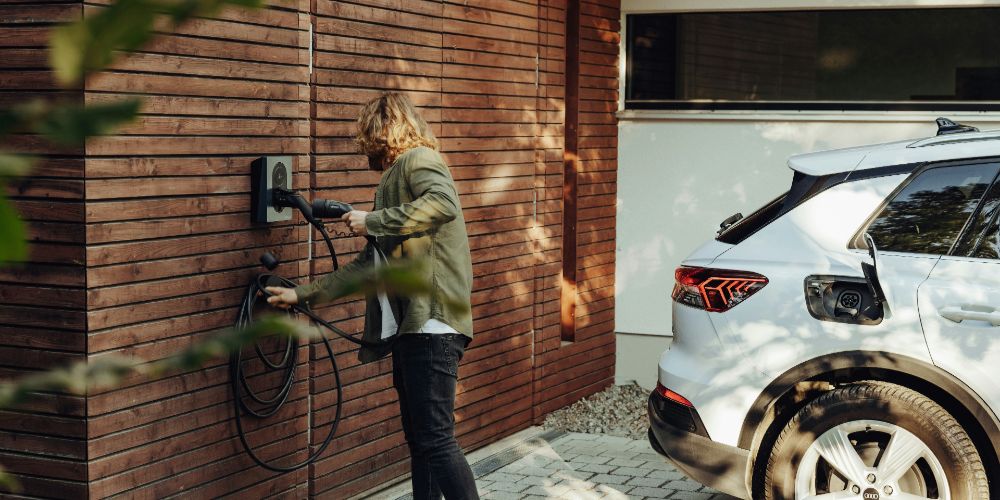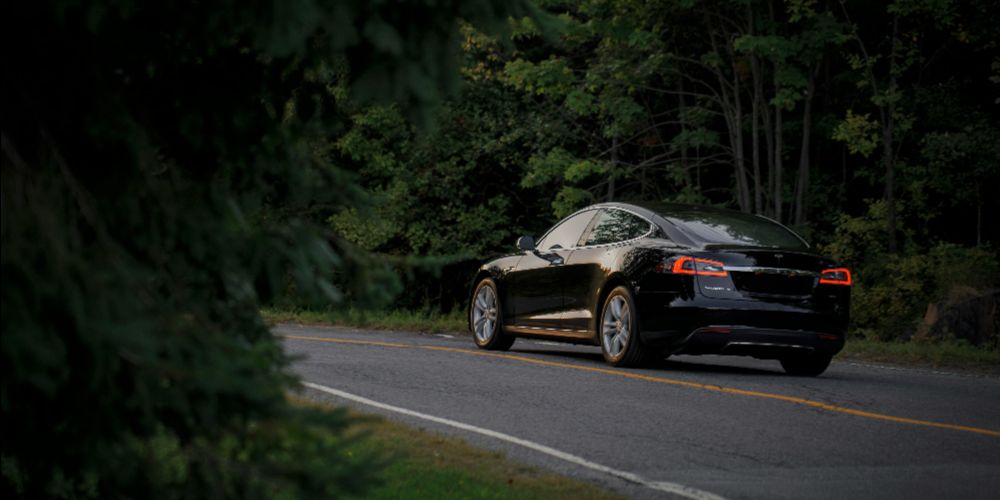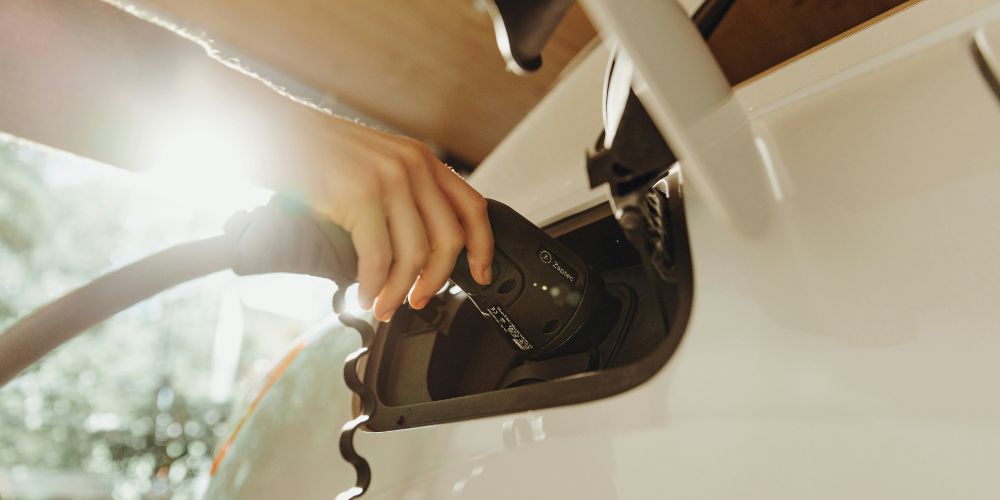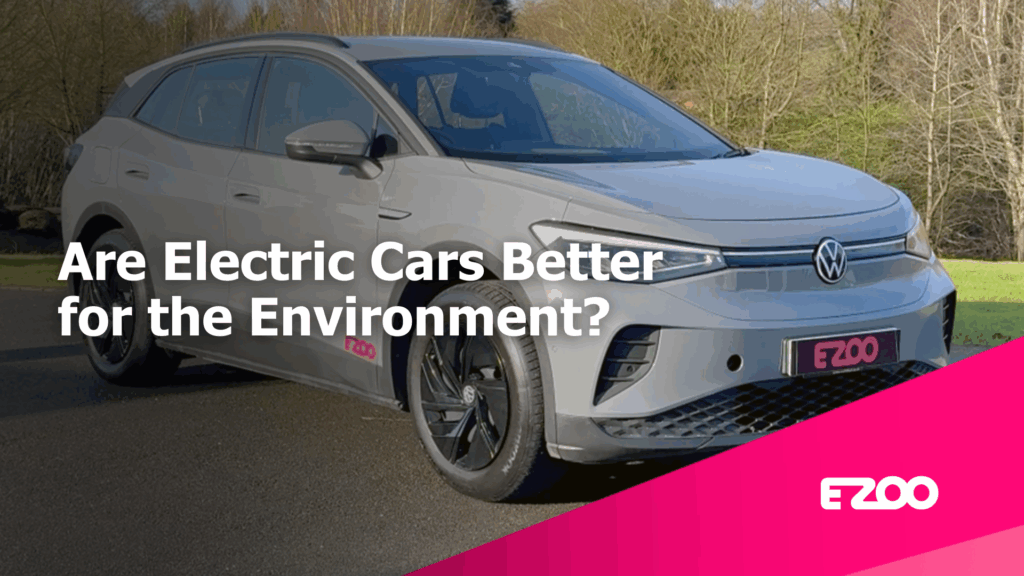With UK net‑zero targets, air‑quality concerns, and tight emissions regulations, the shift to electric vehicles (EVs) is more than just a trend.
But with this surge comes a fair question – are electric cars genuinely better for the environment, or is it just clever marketing?
The short answer? Yes, electric cars are better for the environment. But there’s more to the story than simply saying EVs are “cleaner”.
From manufacturing and day-to-day use to air quality and end-of-life recycling, EV cars offer environmental benefits that go well beyond the lack of a tailpipe.
What Makes a Vehicle ‘Environmentally Friendly’?
To understand the impact of EVs, we first need to understand how vehicle emissions are measured. It’s not just about what comes out of the exhaust (though that’s important).
It’s about the entire life cycle of the vehicle – from the moment it’s manufactured to the day it’s scrapped or recycled. This includes:
- Manufacturing emissions (especially battery production)
- Energy used to power the car (electricity vs petrol/diesel)
- Tailpipe emissions (or the lack thereof)
- Particulate pollution (brakes, tyres, and road wear)
- End-of-life recycling and re-use
EVs perform differently across each stage – but the total picture is clear: they’re significantly better for the environment than petrol and diesel vehicles.

Yes, Manufacturing EVs Produces More CO₂ – But Only Upfront
Let’s address a common myth straight away: electric cars are more polluting to build than petrol or diesel ones. That’s true – but only to an extent.
The main reason is the battery. Lithium-ion battery production is energy-intensive, requiring mined raw materials like lithium, cobalt and nickel. As a result, the CO₂ emissions from producing an electric vehicle can be higher than for an equivalent petrol car.
However, once the EV hits the road, it starts to pay back that environmental debt – and fast.
The Carbon Payback Period Is Short
Every mile an EV travels emits less CO₂ than a petrol or diesel car would. That’s because EVs are more energy-efficient and, crucially, don’t burn fossil fuels as they go.
Once you’ve driven your EV for around two to three years, you’ll have offset the higher manufacturing emissions – and from that point onwards, your vehicle becomes a net environmental win. Drive it for five, ten, or fifteen years, and the gap in emissions between EVs and petrol cars becomes enormous.
EVs Get Cleaner Every Year
What makes EVs especially exciting is that they get greener over time. Why? Because the electricity grid is getting cleaner. As more of the UK’s power comes from wind, solar, and other renewables, charging your EV becomes less carbon-intensive year after year.
Compare that to petrol or diesel vehicles, which will always emit CO₂ and harmful pollutants every time they’re driven. Fossil fuels are a finite and dirty energy source – electricity, on the other hand, is evolving rapidly in the right direction.
Zero Tailpipe Emissions Means Cleaner Air
EVs don’t just help with global carbon emissions – they also make a big difference to local air quality. In towns and cities across the UK, poor air quality is a real health problem, caused mainly by nitrogen dioxide (NO₂) and tiny particulates from combustion engines.
Because EVs produce zero tailpipe emissions, they dramatically reduce the amount of harmful gases released into the air we breathe. That means:
- Lower asthma rates, especially in children
- Fewer hospital admissions linked to pollution
- Healthier city living and commuting
If your business operates in a city with a Clean Air Zone, switching to electric also avoids extra charges – so it’s a win for your balance sheet as well as your carbon footprint.

What About Tyre and Brake Pollution?
Another myth we often hear is that EVs create more pollution through their tyres and brakes because they’re heavier than petrol cars.
It’s true that EVs typically weigh more – but they also use regenerative braking, which drastically reduces brake wear. In fact, EV drivers often use their brakes far less than petrol or diesel drivers, especially in urban stop-start traffic.
While tyre wear does contribute to microplastic pollution, it’s not unique to EVs, and modern EVs are increasingly being fitted with low-resistance tyres designed to reduce both wear and rolling friction. Overall, when it comes to particulates, EVs still come out ahead.
Battery Recycling and Second Life Use
One of the most exciting developments in the EV space is how batteries are being reused and recycled. Even after they’re no longer suitable for powering a car, batteries can be repurposed for energy storage, helping to stabilise the grid or store solar power for homes and businesses.
And when they truly reach the end of their life, more and more companies are investing in battery recycling technologies that recover the valuable raw materials, reducing the need for new mining and keeping the supply chain circular.
It’s early days – but the battery ecosystem is heading in the right direction.

What About Building Fewer Cars?
It’s also worth being honest: the greenest car is no car at all. Public transport, cycling, walking, and shared mobility all play an important role in reducing environmental impact.
But when cars are needed – and they often are for families, logistics, work fleets, or rural travel – electric is by far the best option. And when paired with shared use, car subscriptions, and salary sacrifice schemes, EVs can form part of a much cleaner, smarter transport system.
What Can Businesses Do?
If you’re a business looking to reduce emissions and operate more sustainably, switching to electric vehicles is one of the most immediate and impactful steps you can take.
Through options like EV salary sacrifice or business car subscriptions, you can:
- Cut fleet emissions
- Offer tax-efficient perks to staff
- Improve your ESG credentials
- Avoid Clean Air Zone charges
- Drive brand-new vehicles with no upfront cost
And best of all, it’s simple. With EZOO, the process is smooth, fully supported, and tailored to your business.
EVs Offer Huge Improvements At Every Stage
So – are electric cars better for the environment? Absolutely. While no vehicle is truly “zero impact,” EVs offer huge improvements across every stage of their life cycle. From lower CO₂ emissions to better air quality, fewer moving parts, and battery recycling, the environmental benefits are real, measurable, and growing every year.
The transition to electric vehicles isn’t just a step forward for drivers – it’s a leap forward for the planet. Whether you’re an individual or a business, making the switch today means being part of a cleaner, smarter, more sustainable tomorrow.

